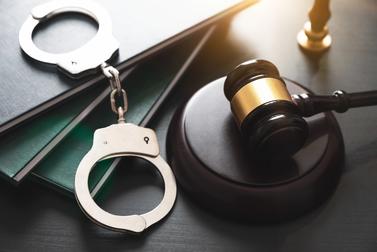Professional Private Investigation Courses Online
Gain exclusive access to expert-led investigative methods, hands-on case studies, and cutting-edge forensic techniques. Learn directly from seasoned professionals with decades of field experience.
Course Catalog
Explore our comprehensive selection of investigative training courses designed for all levels — from aspiring private investigators to seasoned professionals. Each course is crafted by industry experts to provide practical skills, proven methodologies, and real-world insights.
Find a course:

Gain a comprehensive understanding of product liability cases and the investigative process behind them. This course covers how to evaluate defective product claims, collect and preserve critical evidence, interview witnesses, and work with legal teams to determine causation and responsibility. You’ll learn investigative strategies for cases involving manufacturing defects, design flaws, and failure-to-warn claims, as well as how to present findings in clear, defensible reports for use in court. Taught by experienced investigators, this training blends real-world case studies with practical techniques you can apply immediately in the field.
Gain a comprehensive understanding of product liability cases and the investigative process behind them. This course covers how to evaluate defective product claims, collect and preserve critical evidence, interview witnesses, and work with legal teams to determine causation and responsibility. You’ll learn investigative strategies for cases involving manufacturing defects, design flaws, and failure-to-warn claims, as well as how to present findings in clear, defensible reports for use in court. Taught by experienced investigators, this training blends real-world case studies with practical techniques you can apply immediately in the field.

Master the skills needed to conduct thorough, unbiased criminal defense investigations. This course walks you through case intake, reviewing discovery, developing investigative strategies, interviewing witnesses, and uncovering evidence that supports the defense. You’ll learn how to identify inconsistencies in prosecution evidence, work with attorneys to build a strong defense, and document findings in a way that stands up in court. With real case examples and field-proven methods, you’ll gain the confidence to handle everything from misdemeanors to high-profile felony cases.
Master the skills needed to conduct thorough, unbiased criminal defense investigations. This course walks you through case intake, reviewing discovery, developing investigative strategies, interviewing witnesses, and uncovering evidence that supports the defense. You’ll learn how to identify inconsistencies in prosecution evidence, work with attorneys to build a strong defense, and document findings in a way that stands up in court. With real case examples and field-proven methods, you’ll gain the confidence to handle everything from misdemeanors to high-profile felony cases.

Learn the step-by-step protocols law enforcement professionals use to secure, process, and document a crime scene. This course covers initial response procedures, scene preservation, evidence identification, photography, sketching, chain of custody, and proper evidence packaging. You’ll gain insight into how officers and investigators collaborate at the scene, ensuring that all physical evidence is handled in compliance with legal and forensic standards. Through real-world scenarios and best practices, you’ll develop the skills to maintain scene integrity, avoid contamination, and prepare evidence for courtroom presentation.
Learn the step-by-step protocols law enforcement professionals use to secure, process, and document a crime scene. This course covers initial response procedures, scene preservation, evidence identification, photography, sketching, chain of custody, and proper evidence packaging. You’ll gain insight into how officers and investigators collaborate at the scene, ensuring that all physical evidence is handled in compliance with legal and forensic standards. Through real-world scenarios and best practices, you’ll develop the skills to maintain scene integrity, avoid contamination, and prepare evidence for courtroom presentation.

Master the art and science of surveillance with techniques used by professional investigators in real-world cases. This course covers fixed and mobile surveillance, foot and vehicle tailing, covert photography and video, use of specialized equipment, maintaining cover, and adapting strategies in dynamic environments. Learn how to gather intelligence discreetly, document findings effectively, and avoid detection, while adhering to legal and ethical guidelines. Practical scenarios and expert insights prepare you to operate confidently in both urban and rural settings.
Master the art and science of surveillance with techniques used by professional investigators in real-world cases. This course covers fixed and mobile surveillance, foot and vehicle tailing, covert photography and video, use of specialized equipment, maintaining cover, and adapting strategies in dynamic environments. Learn how to gather intelligence discreetly, document findings effectively, and avoid detection, while adhering to legal and ethical guidelines. Practical scenarios and expert insights prepare you to operate confidently in both urban and rural settings.

Gain the skills to investigate cases involving alleged violations of constitutional and human rights. This course covers interviewing victims and witnesses, gathering and preserving evidence, analyzing patterns of discrimination, and navigating the legal frameworks that govern civil rights protections. You’ll learn how to work effectively with attorneys, advocacy groups, and oversight bodies to support cases involving law enforcement misconduct, workplace discrimination, or denial of public services. Real-world case studies and practical exercises will prepare you to conduct thorough, ethical, and impactful investigations that uphold justice and equality.
Gain the skills to investigate cases involving alleged violations of constitutional and human rights. This course covers interviewing victims and witnesses, gathering and preserving evidence, analyzing patterns of discrimination, and navigating the legal frameworks that govern civil rights protections. You’ll learn how to work effectively with attorneys, advocacy groups, and oversight bodies to support cases involving law enforcement misconduct, workplace discrimination, or denial of public services. Real-world case studies and practical exercises will prepare you to conduct thorough, ethical, and impactful investigations that uphold justice and equality.

This course equips investigators with the specialized skills required to handle cases involving the sexual assault of minors. Training covers trauma-informed interviewing, proper evidence collection and preservation, collaboration with law enforcement and child advocacy professionals, and navigating the legal processes unique to these sensitive cases. Emphasis is placed on protecting the well-being of the child while ensuring a thorough, unbiased, and legally sound investigation.
This course equips investigators with the specialized skills required to handle cases involving the sexual assault of minors. Training covers trauma-informed interviewing, proper evidence collection and preservation, collaboration with law enforcement and child advocacy professionals, and navigating the legal processes unique to these sensitive cases. Emphasis is placed on protecting the well-being of the child while ensuring a thorough, unbiased, and legally sound investigation.

This course outlines the role, responsibilities, and ethical framework of legal investigators. Students will learn how legal investigators operate within the justice system, the types of cases they handle, and the professional standards they must uphold. The training covers essential skills such as fact-finding, evidence collection, witness interviewing, and case documentation, providing a clear understanding of how these professionals contribute to legal proceedings.
This course outlines the role, responsibilities, and ethical framework of legal investigators. Students will learn how legal investigators operate within the justice system, the types of cases they handle, and the professional standards they must uphold. The training covers essential skills such as fact-finding, evidence collection, witness interviewing, and case documentation, providing a clear understanding of how these professionals contribute to legal proceedings.

This course explores the critical responsibilities of legal investigators in post-conviction cases and the ethical considerations that guide their work in criminal defense. Students will learn strategies for reviewing trial records, locating new evidence, re-interviewing witnesses, and collaborating with defense attorneys to challenge wrongful convictions. The ethics component covers professional conduct, client confidentiality, and maintaining objectivity while pursuing justice.
This course explores the critical responsibilities of legal investigators in post-conviction cases and the ethical considerations that guide their work in criminal defense. Students will learn strategies for reviewing trial records, locating new evidence, re-interviewing witnesses, and collaborating with defense attorneys to challenge wrongful convictions. The ethics component covers professional conduct, client confidentiality, and maintaining objectivity while pursuing justice.

This course examines how legal investigators use social media as a powerful tool for gathering evidence, verifying facts, and tracking subjects. Students will learn techniques for locating and preserving online content, understanding privacy settings, and analyzing digital behavior patterns. The course also covers ethical and legal considerations, including admissibility in court and compliance with jurisdictional laws. Practical case studies will illustrate how social media can uncover key leads in both civil and criminal investigations.
This course examines how legal investigators use social media as a powerful tool for gathering evidence, verifying facts, and tracking subjects. Students will learn techniques for locating and preserving online content, understanding privacy settings, and analyzing digital behavior patterns. The course also covers ethical and legal considerations, including admissibility in court and compliance with jurisdictional laws. Practical case studies will illustrate how social media can uncover key leads in both civil and criminal investigations.

This course explores the investigative strategies and ethical considerations unique to post-conviction work compared to active criminal defense cases. Students will examine how objectives, evidence requirements, and investigative scope differ between defending an accused person pre-trial and working to overturn or modify a conviction. Topics include re-investigating cold cases, uncovering new evidence, identifying procedural errors, and navigating appeals. Real-world case studies will highlight the challenges and opportunities investigators face in each stage of the justice process.
This course explores the investigative strategies and ethical considerations unique to post-conviction work compared to active criminal defense cases. Students will examine how objectives, evidence requirements, and investigative scope differ between defending an accused person pre-trial and working to overturn or modify a conviction. Topics include re-investigating cold cases, uncovering new evidence, identifying procedural errors, and navigating appeals. Real-world case studies will highlight the challenges and opportunities investigators face in each stage of the justice process.

This course examines the complexities of conducting investigations that span multiple countries and jurisdictions. Participants will learn how to navigate diverse legal systems, cultural differences, and logistical barriers when handling international cases. Topics include collaborating with foreign law enforcement, securing admissible evidence across borders, understanding international treaties, and managing language and cultural nuances. Case studies will illustrate how investigators adapt strategies for fraud, corporate disputes, missing persons, and other matters that require global reach.
This course examines the complexities of conducting investigations that span multiple countries and jurisdictions. Participants will learn how to navigate diverse legal systems, cultural differences, and logistical barriers when handling international cases. Topics include collaborating with foreign law enforcement, securing admissible evidence across borders, understanding international treaties, and managing language and cultural nuances. Case studies will illustrate how investigators adapt strategies for fraud, corporate disputes, missing persons, and other matters that require global reach.

This course provides a comprehensive framework for conducting internal investigations within corporations, government agencies, and non-profit organizations. Participants will learn how to identify and respond to allegations of fraud, embezzlement, harassment, regulatory violations, and other workplace misconduct. The curriculum covers investigative planning, interviewing employees, gathering and preserving digital and physical evidence, maintaining confidentiality, and ensuring compliance with employment laws. Real-world case studies will demonstrate how corporate investigators balance discretion with thoroughness to protect both the organization’s integrity and employee rights.
This course provides a comprehensive framework for conducting internal investigations within corporations, government agencies, and non-profit organizations. Participants will learn how to identify and respond to allegations of fraud, embezzlement, harassment, regulatory violations, and other workplace misconduct. The curriculum covers investigative planning, interviewing employees, gathering and preserving digital and physical evidence, maintaining confidentiality, and ensuring compliance with employment laws. Real-world case studies will demonstrate how corporate investigators balance discretion with thoroughness to protect both the organization’s integrity and employee rights.

Stay compliant and effective by understanding the legal boundaries that shape investigative work. This course covers essential laws, regulations, and case precedents affecting private and legal investigators, from privacy and evidence collection to professional ethics. By mastering these core legal principles, you’ll protect your clients, your cases, and your professional license.
Stay compliant and effective by understanding the legal boundaries that shape investigative work. This course covers essential laws, regulations, and case precedents affecting private and legal investigators, from privacy and evidence collection to professional ethics. By mastering these core legal principles, you’ll protect your clients, your cases, and your professional license.

Master the timeless skills of investigative work before the digital age. This course explores traditional information-gathering methods that remain essential today—such as in-person interviews, physical surveillance, public record searches, and on-the-ground fact-finding. Learn how to uncover critical details without relying on modern databases, ensuring you can adapt in any environment where online tools are limited or unavailable.
Master the timeless skills of investigative work before the digital age. This course explores traditional information-gathering methods that remain essential today—such as in-person interviews, physical surveillance, public record searches, and on-the-ground fact-finding. Learn how to uncover critical details without relying on modern databases, ensuring you can adapt in any environment where online tools are limited or unavailable.

Learn how to conduct thorough, legally compliant investigations that stand up in court. This course covers the principles and procedures of working with attorneys, gathering admissible evidence, interviewing witnesses, and preparing investigative reports that meet legal standards. Whether working in civil, criminal, or corporate law, you’ll gain the skills to support litigation effectively while protecting the integrity of your work.
Learn how to conduct thorough, legally compliant investigations that stand up in court. This course covers the principles and procedures of working with attorneys, gathering admissible evidence, interviewing witnesses, and preparing investigative reports that meet legal standards. Whether working in civil, criminal, or corporate law, you’ll gain the skills to support litigation effectively while protecting the integrity of your work.
Stay Sharp. Stay Informed.
Subscribe to our mailing list and get exclusive insights, investigative tips, and updates on new courses — straight from the experts. Join our community of professionals dedicated to advancing their skills.
We respect your privacy. Unsubscribe anytime.